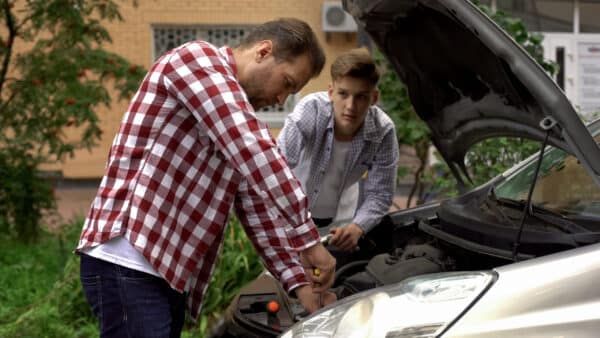
Written by Cameron O’Brien, ACC
Why Youth Need Role Models: Paving a Path to a Fulfilling Career
Research has long demonstrated the positive association of having a role model on adolescent behavior and school performance.
A 2023 report called Role Models Matter released by Amazon and Gallup highlights the influence of role models on youth career trajectory.
In the study, working adults who had a successful role model in their childhood were more likely to experience career fulfillment than those who did not (68% vs. 51%). Additionally, those adults with role models in adolescence felt more established in their career than those without (64% vs. 45%). Role models have a monetary impact, too. Among all adults in the study, those who had someone with a successful career to look up to were more likely to be earning $60,000 or more compared to those who did not (52% to 39%).
Why Youth Need Role Models: Weaving Values into Life Journey
A National Institutes of Health study demonstrated the powerful influence of positive family role models on happiness, safety, and education of adolescents.
The earlier adolescents participate in risky behavior, the more likely they will experience negative adult outcomes. That’s why it’s so important for adolescents to find positive role models early.
The report shows that family role models, as well as role models youth know personally, are associated with a decrease in high-risk behaviors and negative outcomes.
Four Powerful Ways Adults Can Shape Young Minds Through Role Modeling
1. Lead by example.
Social proof is a phenomenon where people are more likely to do something that they have seen another person accomplish. Research shows that it is powerful to witness someone with similar life experiences (environment, community, etc.) to you succeed. Amazon and Gallup’s study found among those adults who agree their role model had similar life experiences to them, 81% say their role model motivated them to achieve great things compared to only 59% of those whose role model did not share similar life experiences.
2. Involve the adolescent.
Ask the young person to identify what qualities they admire in a role model, and how those qualities reflect their personal values. Encourage them to become involved in activities that reflect those values – in school, in sports, in arts, or in the community at large. Widening their social network with values at the forefront will expose them to even more potential positive role models.
3. Be transparent.
Negative role models can also influence kids just as easily as positive ones can. Youth may assume that the poor or negative behaviors of widely admired public figures or family members are acceptable. It is important to call this behavior out with your adolescent when you see it (or do it). Remind them that all people have good and bad qualities, and any person is capable of making a mistake or a poor decision. Emphasize that the most important things are to be accountable to the mistake, apologize to those who have been harmed, and learn from the experience and avoid repeating the mistake in the future. Engage the adolescent – when you identify a negative situation or behavior from a potential role model, ask the young person how they would have responded differently.
4. Share your role models.
Give the adolescent examples of people in your community who you feel have positive qualities and are a good influence on others. Share your personal experiences with role models; who do you look up to for guidance and inspiration (both as a child and as an adult)? It is important for adolescents to know that everyone has someone who has influenced their life and career path.
Want to learn more about serving as a role model through coaching? Check out our accredited youth well-being and resilience coach training programs.
—
Author: Cameron O’Brien, ACC